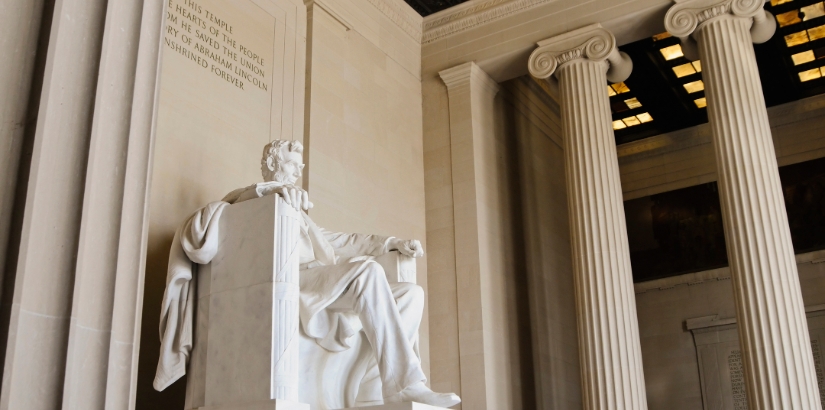Friday Reflection | June 11, 2021
Innovation is all around us, and here in the Bay Area, we feel its presence more acutely than most. We live in an area that is a hub of technology and science fueled by world-class universities, a diverse workforce with its concomitant variety of skill sets and perspectives, and a critical mass of prominent technology companies. When we zoom out to a national and global perspective, the landscape of scientific and technological leadership is not as clearly centered in the US. Attention has been shifting east with the rise of China and its state-sponsored commitment to next-generation technology, including artificial intelligence and semiconductors. Investors are keenly aware of this shift and the tensions that are building as the world’s two superpowers compete for leadership.
Creating a sense of urgency for long-term issues isn’t easy for investors or policymakers. These investments, which may have delayed and unexpected benefits over multiple decades, often can’t rally enough support to spur immediate action. As history unfolds, however, it is precisely this type of patient and visionary investment that yields that largest payoff for investors and society alike.
Bipartisan Research Bill
This week the market headlines focused on short-term inflation reports, while long-term investors had to look beyond the headlines for a pivotal piece of news. On Tuesday, the US Senate showed rare broad bipartisan support in voting for the Innovation and Competition Act. The $250B package of programs intends to bolster broad R&D efforts and modernize production capacity domestically as a way to counter China’s technological ambitions.
The bill specifically allocates $54B to increase domestic production of semiconductors and telecom equipment. As we have written recently, the global shortage of semiconductor chips is affecting prices and availability of everything from new cars to military equipment to consumer electronics.1 The Semiconductor Industry Association recently reported that the US share of global chip making capacity has tumbled from 37% in 1990 to 12% at the present.2 This new funding is intended to kick off the rebuilding process by adding seven to ten new semiconductor plants in the US.
The Commerce Department will receive $10B in funding to designate regional technology hubs for R&D, and match financial incentives offered by states and local governments to chipmakers who expand or construct new factories.3 Just as diversification is important in portfolios, the broad success of the United States would benefit from innovation hubs in regions beyond just Silicon Valley. This bill aims to accelerate that expansion.
Perhaps the most forward-looking aspect of the bill would create a new directorate focused on artificial intelligence and quantum science within the National Science Foundation. The NSF would receive $81 billion over five years, beginning in fiscal year 2022, largely centered around “key technology focus areas,” which include artificial intelligence, advanced computing, robotics and automation, natural disaster prevention or mitigation, biotechnology, and data storage and management.4 This commitment to research is critical, as federal R&D spending in recent years has been at its lowest level since the space race in the 1960s.5 Arvind Krishna, CEO of IBM, called the bill a “visionary piece of legislation” that encourages “the type of public private collaboration that took humanity to the moon.”
Expanding Our Options
Innovation can mean leaving behind old technology and shifting to new ways of doing things. More often, though, it means expanding our opportunity set and overall quality of life, adding to the existing landscape. This week’s legislation does not seek to eschew global chip manufacturers or China as a business partner for US companies, but rather expands support for domestic production and research. For example, in the push toward renewable energy, traditional sources will continue to play an important role for decades to come in even the most ambitious forecasts. The pattern of change supported in this bill is about more choice and resiliency, not less.
Vaccination progress and economic re-opening are similarly expanding choice and resiliency here in California. We are experiencing greater opportunities for travel, community building, and social interaction. Alongside these new opportunities, we will continue to embrace the innovation that was built over the past year.
We anticipate the re-opening of our Solano Avenue office to clients next week, regaining the benefits of in-person meetings while retaining the flexibility of remote conversations that we embraced during the pandemic. This is one example of the expanded opportunity that underpins our optimism for the global economy as well as our collaborative work with clients. We rarely know the exact timeline of progress, but we are willing to be patient investors in innovation and research that benefit a multitude of stakeholders including both community and commerce.
References
1 Pinch Points; North Berkeley Wealth Management
2 The Senate Passes A Bill To Encourage Tech Competition, Especially With China NPR.org
3 Senate Approves $250 Billion Bill to Boost Tech Research WSJ
4 Senate Passes Bill Funding Technology Research Through NSF Inside Higher Ed
5 The pursuit of putting humans on the moon allowed collateral innovation to blossom. As a direct result, we now have vast satellite networks that allow continuous broadband communication, accurate weather forecasting, and the ability to GPS track your deliveries all the way to your doorstep. Other resulting innovations include advancements in artificial limbs, anti-icing systems that allow aircraft to safely fly in cold weather, LED lighting, and the invention of smoke and carbon monoxide detectors. Space Race 2.0; North Berkeley Wealth Management
 | About Brian Kozel, CFP®Brian is a partner, senior advisor, and Chief Investment Officer at North Berkeley Wealth Management. Brian helps clients feel confident as they navigate their financial journey. |
This commentary on this website reflects the personal opinions, viewpoints, and analyses of the North Berkeley Wealth Management (“North Berkeley”) employees providing such comments, and should not be regarded as a description of advisory services provided by North Berkeley or performance returns of any North Berkeley client. The views reflected in the commentary are subject to change at any time without notice. Nothing on this website constitutes investment advice, performance data, or any recommendation that any particular security, portfolio of securities, transaction, or investment strategy is suitable for any specific person. Any mention of a particular security and related performance data is not a recommendation to buy or sell that security. North Berkeley manages its clients’ accounts using a variety of investment techniques and strategies, which are not necessarily discussed in the commentary. Investments in securities involve the risk of loss. Past performance is no guarantee of future results.



